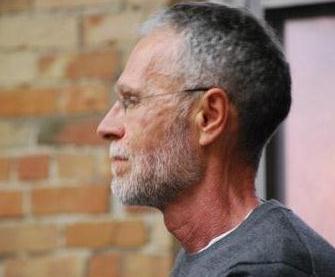
Tim McCaskell says he is appalled by the attorney general's silence on the issue of HIV criminalization.
A coalition of Ontario HIV/AIDS groups has launched a new phase of their campaign to compel the province’s attorney general to stop prosecuting HIV-positive Ontarians for nondisclosure.
The new front – a letter-writing campaign – was organized by the Ontario Working Group on Criminal Law and HIV Exposure and marks a ratcheting up of tensions between activists in Ontario’s HIV/AIDS community and Queen’s Park.
“There’s increasing anxiety about the intentions of the attorney general,” says AIDS Action Now member Tim McCaskell, who is also with the working group.
Attorney General John Gerretsen is the campaign’s main target.
Gerretsen has raised the ire of the HIV/AIDS community because his ministry continues to try to appeal cases involving criminal nondisclosure, especially those where there was no “significant risk” because the positive person had a low viral load or wore a condom.
This comes after signals from the province that legislators were looking to work with AIDS groups to establish guidelines that both sides could live with.
But now the province says it’s going ahead with prosecutions and is refusing to meet with any of the groups until the Supreme Court passes down two decisions.
“It would be premature to address prosecutorial guidelines ahead of this ruling,” a spokesperson for the Ministry of the Attorney General told Xtra, refusing to comment further.
That, for McCaskell, isn’t good enough.
“We’re about the law; therefore, we only need to talk to lawyers,” McCaskell says, mocking the ministry.
“People are appalled at the lack of responsiveness from the attorney general’s office.”
The working group argues that if the province isn’t interested in sitting down until the Supreme Court renders its verdicts, fine, but it should put a halt on prosecutions at the same time.
The two cases before the Supreme Court could have a major impact on how every province deals with nondisclosure. If Manitoba gets its way in one of the cases, the 1998 establishment of “significant risk” by the Supreme Court could be thrown out the window. That would, legally, justify Ontario’s approach.
The working group would much rather see the province adopt a scientific process for qualifying “significant risk” and set up guidelines about how cases of nondisclosure are dealt with.
In July, Xtra reported on the attorney general’s “betrayal” of the HIV community, when the province reversed its position on crafting guidelines for prosecution. The province opted for what AIDS groups called a “radical” position of arguing that risk of infection should have no role in criminal cases. That, in essence, meant that the province would push forward in prosecuting HIV-positive people who had sex – even if they wore protection or their viral loads were low, and even if transmission didn’t occur.


 Why you can trust Xtra
Why you can trust Xtra


